True to his signature preference for “going to the peripheries,” the new cardinals hail from all over the globe, including some more obscure spots
By CNA
Pope Francis has announced that he will create 21 new cardinals, including American Bishop Robert Walter McElroy of San Diego, at a consistory on August 27. Five are above age 80 and so not eligible to vote in a papal conclave.
The 85-year-old Pope made the announcement from a window overlooking St. Peter’s Square after reciting the Regina Coeli prayer on May 29. Since his election in 2013, Francis has created 101 cardinals from 58 countries at seven consistories.
The last consistory to create new cardinals took place on November 28, 2020. The new cardinals that year included Cardinal Wilton Gregory of Washington and Cardinal Raniero Cantalamessa, the Preacher to the Papal Household since 1980.
Immediately following the 2020 consistory, 73 of the members of the College of Cardinals eligible to vote in a future conclave had been chosen by Pope Francis. Benedict XVI had named 39 of the cardinal electors and John Paul II 16.
The choice of August for a Consistory — a time when the weather in Rome is boiling hot — is unusual. Usually Consistories in recent years have been held in November or in February.
This is the full list:
Arthur Roche, Prefect of the Congregation for Divine Worship and the Discipline of the Sacraments (United Kingdom)
Lazzaro You Heung-sik, Prefect for the Congregation for Clergy (South Korea)
Fernando Vergez Alzaga, President of the Pontifical Commission for Vatican City State (Spain)
Archbishop Jean-Marc Aveline of Marseille (France)
Archbishop Peter Okpaleke of Ekwulobia (Nigeria)
Archbishop Leonardo Ulrich Steiner of Manaus (Brazil)
Archbishop Filipe Neri António Sebastião of Rosário Ferrão, of Goa e Damão (India)
Bishop Robert Walter McElroy of San Diego (United States)
Archbishop Virgilio Do Carmo Da Silva of Dili (East Timor)
Bishop Oscar Cantoni of Como (Italy)
Archbishop Anthony Poola of Hyderabad (India)
Archbishop Paulo Cezar Costa of Brasília (Brazil)
Bishop Richard Kuuia Baawobr M. Afr, of Wa (Ghana)
Archbishop William Goh Seng Chye of Singapore (Singapore)
Archbishop Adalberto Martínez Flores of Asunción (Paraguay)
Archbishop Giorgio Marengo Prefect of Ulaanbaatar (Mongolia)
(These five below are over the age of 80 and thus not able to vote in a papal conclave):
Archbishop Jorge Enrique Jiménez Carvajal, Archbishop Emeritus of Cartagena (Colombia)
Archbishop Lucas Van Looy SDB, Archbishop Emeritus of Ghent (Belgium)
Archbishop Arrigo Miglio Archbishop Emeritus of Cagliari (Italy)
Father Gianfranco Ghirlanda, SJ (Italy)
Monsignor Fortunato Frezza (Italy)
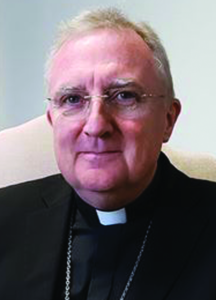 Arthur Roche
Arthur Roche
Prefect of the Congregation for Divine Worship and the Discipline of the Sacraments
Archbishop Arthur Roche, 70, prefect of the Congregation for Divine Worship and the Discipline of the Sacraments, studied at St. Alban’s College in Valladolid, Spain and was ordained in 1975. He was named a bishop in the Diocese of Leeds, England, and worked at chancery positions; he received his licentiate in theology from the Pontifical Gregorian University and was named General Secretary of the English and Welsh bishops’ conference in 1996. In 2002, he was elected Chairman of the International Commission on English in the Liturgy.
Since becoming Prefect at the CDW, Archbishop Roche has come under fire for his strict approach to implementing the motu proprio restricting the Traditional Latin Mass, Traditionis Custodes, and for his claim that Pope Paul VI “abrogated” the old rite.
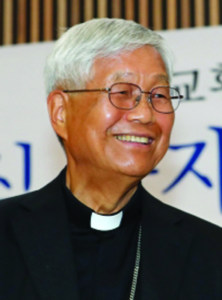 Lazzaro You Heung-sik
Lazzaro You Heung-sik
Prefect for the Congregation for Clergy (South Korea)
Archbishop Lazarus You Heung-sik, 70, is current Prefect for the Congregation for the Clergy, and the first Korean in a head curial position. He was born in Nonsan, South Chungcheong, South Korea, and baptized a Catholic at the age of sixteen. He studied at the Catholic University of Korea in Seoul and then in Rome, at the Pontifical Lateran University. He was ordained in 1979.
In 1994, he became spiritual director and professor, and later president, at the Catholic University of Daejeon, and he has been associated with the Focolare Movement.
Pope John Paul II named him Bishop Coadjutor of Daejeon in 2003, and he led committees on migrants, youth ministry, and the cause of Korean martyrs. As head of Caritas Korea from 2004 to 2008, You visited Pyongyang four times.
He described the situation of young people in Korea: “Since childhood they grow up in a highly competitive society. Competition thwarts fraternal relations, it casts off friendships and nurtures loneliness.”
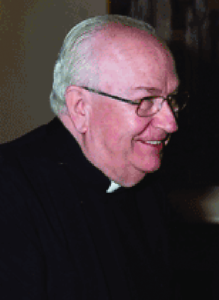 Fernando Verges Alzaga
Fernando Verges Alzaga
President of the Pontifical Commission for Vatican City State
Fr. Fernando Vergez Alzaga, 77, was born in Salamanca, Spain, was ordained a priest in 1969, and began working for the Holy See three years later. He has collaborated in different Vatican organizations over more than 50 years, including the Congregation for Religious Life, and he has also been responsible for the Holy See’s Office of Internet and Telecommunications.
Pope Francis in 2021 appointed Fr. Vergez as President of the Pontifical Commission for Vatican City State and President of the Governorate of Vatican City State; previously he was Secretary General. He is the first member of the Legionaries of Christ to be named a cardinal, coming 12 years after the Vatican investigation exposing the misdeeds of deceased Legionaries founder Marcial Maciel and others in his circle.
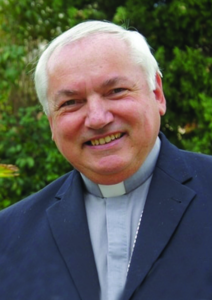 Jean-Marc Aveline
Jean-Marc Aveline
Archbishop of Marseille
Archbishop Jean-Mar Aveline, 63, ordained a priest for the Archdiocese of Marseille, France, in 1984. He was a seminary professor of dogmatic theology and director of studies from1986 to 1991, and then head of vocations and diocesan delegate for seminarians until 1996. In 1992 he founded and managed until 2002 the Institute of Science and Theology of Religions of Marseille. He was also director of the Catholic Institute from the Mediterranean, and taught theology at the Catholic University of Lyon. In 2000, he completed a joint doctorate in theology and philosophy.
Archbishop Avaline leads a diocese centered on a port city which is heavily populated with migrants, many of them Muslim and young, and he is known for his attention to the poor and his dialogue with Islam.
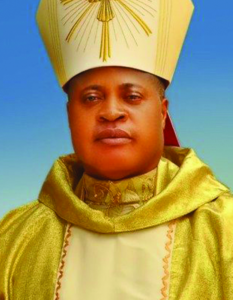 Peter Okpaleke
Peter Okpaleke
Archbishop of Ekwulobia
Bishop Peter Ebere Okpaleke, 59, born in Amesi in Anambra State, Nigeria, was ordained a priest of the Diocese of Awka in 1990. He has been a university chaplain, parish priest, diocesan finance administrator and chancellor, and secretary and member of diocesan boards. He also studied canon law in Rome at the Pontifical University of the Holy Cross.
Named Bishop of Ahiara, Nigeria in 2012, clergy and parishioners prevented him from taking possession of his see because he was not of the area’s Mbaise ethnic origin. Despite papal intervention, in February 2018, Bishop Okpaleke resigned. Two years later, Pope Francis appointed him bishop of the newly-created Diocese of Ekwulobia, formerly part of Awka Diocese.
The Cardinal-designate stresses the need for pastors to be “participants in the culture” in order to allow “the Gospel of Jesus Christ to penetrate such cultures, and to transform, and to build a dialogue between the Gospel and the culture.”
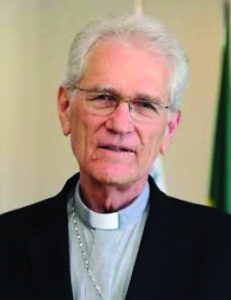 Leonardo Ulrich Steiner
Leonardo Ulrich Steiner
Archbishop of Manaus
Archbishop of Manaus, Brazil, Leonardo Ulrich Steiner, OFM, 71, took his first vows in 1976 and was ordained in 1978 by his cousin, Franciscan Cardinal Paulo Evaristo Arns. He obtained his Licentiate and Doctorate in Philosophy at the Pontifical Antonianum University in Rome, and later became its Secretary General. In 2005 he was ordained a bishop, appointed to the prelature of São Félix do Araguaia, and became Secretary General of the Brazilian bishops’ conference.
Steiner has had to deal with two major crises since 2020: The increasing devastation of the rainforest and the COVID-19 pandemic, which hit hard in Manaus, in the Amazon – a region with an inadequate healthcare structure; Steiner organized spiritual assistance for patients and to the families of the dead in church communities and funeral parlors. He also took part in the distribution of medicine and medical equipment. “He is not a bishop who sits on the fence,” said a bishops’ conference official. “When he talks, people listen.”
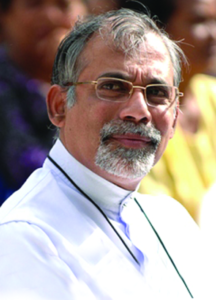 Filipe Neri António Sebastião
Filipe Neri António Sebastião
of Rosário Ferrão, of Goa e Damão
Archbishop Filipe Neri António Sebastião of Rosário Ferrão, of Goa e Damão, India, 69, began his religious studies at the Seminary of Our Lady in Saligao and then went to the Papal Seminary in Pune. He graduated in philosophy and theology and is fluent in Konkani, English, Portuguese, Italian, French and German.
Archbishop Sebastião has been an outspoken advocate of helping migrants, appealing to Catholics to “show greater love and affection for migrants” as “Quite a few of them do not even have the basic necessities of life… Every parish, by using the necessary means, should offer them the love which will rekindle their hope,” he said.
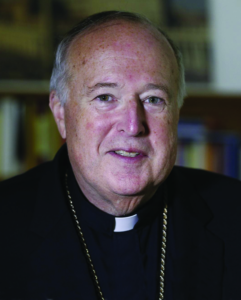 Robert Walter
Robert Walter
Bishop McElroy, of San Diego
Bishop of San Diego Robert McElroy, 68, born in San Francisco, earned his B.A. in history from Harvard and his M.A. in American History from Stanford. After graduating from the seminary, he went on to earn both a licentiate and a doctorate in theology, concentrating on the thought of American Jesuit theologian John Courtney Murray.
Bishop McElroy is widely regarded as a “progressive”-leaning prelate who called for a 2015 NCCB document on “Forming Consciences for Faithful Citizenship” to be scrapped because “It tilts in favor of abortion and euthanasia and excludes poverty and the environment.”
In the 2020 election year, he decried the “public denial of candidates’ identity as Catholics because of a specific policy position they have taken. Such denials are injurious because they reduce Catholic social teaching to a single issue. But they are offensive because they constitute an assault on the meaning of what it is to be Catholic.” Observers highlight his contrast with San Francisco Archbishop Salvatore Cordileone (thus far red-hatless) who recently issued a public admonition to pro-abortion politician Nancy Pelosi to refrain from receiving Holy Communion.
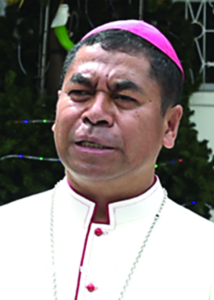 Virgilio Do Carmo Da Silva
Virgilio Do Carmo Da Silva
Archbishop of Dili
Archbishop Virgilio do Carmo da Silva, 54, of Dili, East Timor, is the first cardinal-elect of the island, Timor, shared with Indonesia. Also called Timor-Leste, the country, which was colonized by Portugal, is nearly 98% Catholic and very youthful — its median age is 20.
Da Silva, a priest of the Salesians of St. John Bosco, made his perpetual vows in 1997, and was ordained the following year. He was named bishop of Dili in 2016. He is vice president of the national bishops’ conference.
He said he views his elevation as a blessing for the country, which recently celebrated the 20th anniversary of the restoration of its independence – and the 500th anniversary of its evangelization. The prelate said, “I am convinced that Pope Francis did not offer this to me, Virgilio, but rather to the Church and the people of Timor-Leste.”
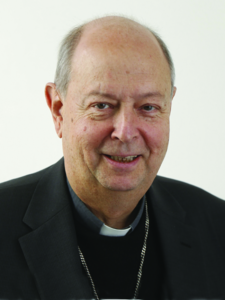 Oscar Cantoni
Oscar Cantoni
Bishop of Como
Bishop of Como, Italy, Oscar Cantoni, 71, was ordained in 1975. Until 1982 he was a parish priest; then he taught religion at the technical institute Pliny Como. In 2000, he was made Honorary Prelate of His Holiness by Pope John Paul II. In 2003 he became the diocese’s episcopal vicar for clergy. Pope John Paul appointed him Bishop of Crema in 2005.
In 2009, after two years of intensive preparatory work in Uni-Crema, “the free university for adults,” he “contributed to the promotion of cultural and social citizenship” through the avenue of “Christian humanism and Christian tradition.” In September 2010 he became the first bishop in Italy to organize a diocesan Youth Mission, including “minstrels of God” intended to communicate His love in nightclubs, theaters, through sport, etc.
In 2011, he organized an ecclesial assembly “in order to prepare our Church to face the times ahead,” with a public discussion open to all. He was installed as Bishop of Como in 2016.
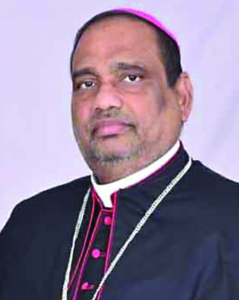 Anthony Poola
Anthony Poola
Archbishop of Hyderabad
Born to a Catholic Dalit (“Untouchable”) family in Kurnool district of Andhra Pradesh, Anthony Poola, 62, joined minor seminary in Kurnool and studied at St. Peter’s Pontifical Major Seminary in Bengaluru. He was ordained in 1992, served in the diocese of Kadapa for over 16 years, and was appointed Bishop of Kurnool in 2008, and Archbishop of Hyderabad in 2020.
Two-thirds of the 18 million Catholics in India are Dalits, and there have been simmering tensions due to continued discrimination against the Dalits even in the Catholic Church. Cardinal-designate Poola hopes to be part of the remedy.
“My elevation as a cardinal is certainly reiteration of the attempt of the Pope to reach out to the peripheries. This is an opportunity for me to be an agent of compassion and mercy to the poor and the Dalits, under the norms of the Church and in obedience to the Holy Father,” Archbishop Poola said.
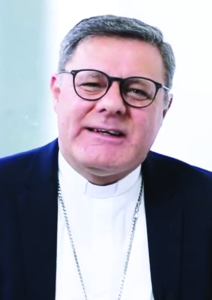 Paulo Cezar Costa
Paulo Cezar Costa
Archbishop of Brasilia
Archbishop Paulo Costa, 55, has been Archbishop of Brasilia, Brazil’s capital, since 2020. He has a licentiate and a doctorate in theology from the Pontifical Gregorian University in Rome, and was ordained in 1992. He is a member of the Pontifical Commission for Latin America and the Pontifical Council for Christian Unity.
Upon his episcopal appointment, he wrote a letter to the Archdiocese of Brasília in which he said, “I go with the disposition to know you, to love you and to donate the best of my strength so that the Gospel of Jesus Christ can be known, loved and witnessed.” His objective, he said, was to realize the “desire of Pope Francis” to promote the “culture of encounter,” and he quoted Pope Francis: “A country grows when its diverse cultural riches dialogue in a constructive way: popular culture, university culture, youth culture, artistic culture and technological culture, economic culture and family culture, and the culture of the media.”
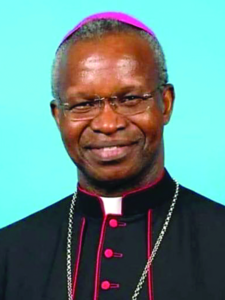 Richard Kuuia Baawobr
Richard Kuuia Baawobr
Bishop of Wa
Bishop Richard Kuuia Baawobr, 63, was born at Tom-Zendagangn, in the Diocese of Wa, Ghana, which he now leads. He entered the Society of Missionaries of Africa in 1981, moving to Fribourg, Switzerland, for his novitiate. After theological studies at the Missionary Institute London, he professed his religious vows in 1986 and was ordained in 1987.
In 2010 Bishop Baawobr was chosen the Superior General of the Missionaries of Africa (the first African to hold this position) as well as vice- chancellor of the Pontifical Institute of Arabic- Islamic Studies (PISAI). He is known for many acts of charity, especially his love for the mentally ill neglected by their families. In 2016, volunteers from the bishop’s project for people with mental illnesses took to the streets to provide them with care. The bishop started using media platforms to raise awareness of mental illness in a country where its stigma is high.
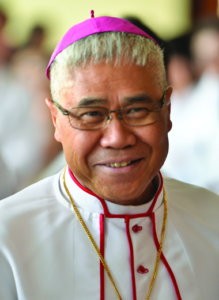 William Goh Seng Chye
William Goh Seng Chye
Archbishop of Singapore
Archbishop William Goh Seng Chye, 65, a fluent Mandarin speaker, has led a small but dynamic Church of Singapore since 2013, especially in pastoral outreach to migrants. After Hong Kong’s Bishop Emeritus John Tong reached the age limit, Goh will be the new ethnic Chinese prelate among the cardinal electors.
In May, Archbishop Goh issued a pastoral letter to the Church of Singapore following an outcry caused by the sentencing to five years in prison of a male religious, convicted in connection with sexual abuse. He wrote: “Conversion is required of the entire Church. We must remember that the sins of one will affect others as well. It is a timely reminder for us to renew our faith, find healing in forgiveness and in God’s mercy, and seek reconciliation with our wounded brothers and sisters by taking the call to conversion of life seriously.”
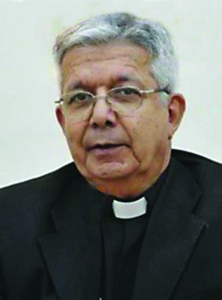 Adalberto Martinez Flores
Adalberto Martinez Flores
Archbishop of Asunción
Archbishop of Asunción, Paraguay, Adalberto Martinez Flores, 71, President of the Paraguayan Epsicopal Conference, takes pains to distinguish the roles of ordained ministry and the laity. Speaking to a conference of the National Coordination of the Laity of Paraguay, he said, “Although the collaboration of the lay faithful is precious and necessary also in pastoral tasks and activities directly linked to the life of the parish … the fundamental mission of the laity is outside the limits of the parish church, or its group or apostolic movement.”
Archbishop Martinez Flores is the founder of the Youth Pastoral Institute and a crusader for the rights of all Paraguayans in a country that is rife with corruption, calling it “part of our daily landscape. Furthermore, many of those who commit or tolerate acts of corruption and those who promote impunity are baptized Catholics…we bishops, clergy, consecrated and lay people need to examine our conscience on our evangelization.”
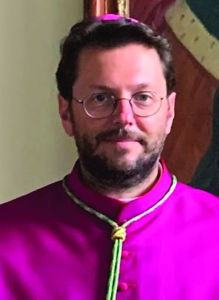 Giorgio Marengo,
Giorgio Marengo,
Archbishop, Prefect of Ulaanbaatar
The Apostolic Prefect of Ulaanbaatar, Mongolia, is not well known, but the pressure on the small states who live in the shadow of Communist China is. Pope Francis has drawn attention to the region, and his “closeness” to them, by naming Mongolia’s Prefect, Archbishop Giorgio Marengo, a cardinal.
The 48-year-old Marengo, an Italian, will become the youngest cardinal in the College of Cardinals. Born in Cuneo, Italy, in 1974, he studied at the Pontifical Urban University, earning a licentiate and a doctorate in missiology. In 2000, he made his profession of vows for the Consolata Missionaries and in 2001 was ordained.
When Pope Francis announced on May 29 that he planned to make Marengo a cardinal, Marengo was in Rome to participate in a meeting he had arranged between the Pope and Buddhist leaders from Mongolia. He said: “Dialogue with the Buddhist world, which is a majority in Mongolia, is fundamental for us; it is part of our mission.”
Over the Conclave voting age of 80
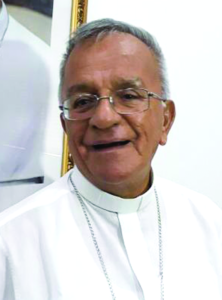 Jorge Enrique Jiménez Carvajal
Jorge Enrique Jiménez Carvajal
Archbishop Emeritus of Cartagena
Jorge Enrique Jiménez Carvajal, 80, Archbishop Emeritus of Cartagena, Colombia, was ordained in 1967; in 1992, Pope John Paul II named him Bishop of Zipaquirá, Colombia. He served as Secretary General of the Episcopal Conference of Colombia (1993-1995), and the Latin American Episcopal Council-CELAM (1995-1999) and President of both (1999- 2003). In 2004, John Paul II appointed him Coadjutor Archbishop of Cartagena.
In 2002, Bishop Carvajal was kidnapped by the Armed Revolutionary Forces of Colombia (FARC), a leftist-guerilla group. Subsequently rescued by the Colombian military, Bishop Carvajal said, “It is a pity that the FARC are seeking social justice by committing the worst injustices, such as depriving a person of his liberty. Social justice will never be the product of injustice, never… This is the tragedy of all that we are going through in our country.”
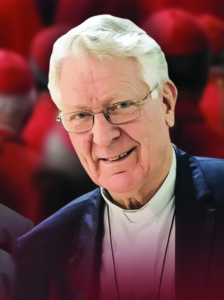 Lucas Van Looy
Lucas Van Looy
Archbishop Emeritus of Ghent
Archbishop Lucas Van Looy, SDB, 80, joined the Salesians of Saint John Bosco in 1961 and after three years in South Korea he earned a licentiate in missiology from the Catholic University of Louvain. He took his final vows in 1968 and was ordained in 1970, holding a series of leadership positions in the Salesians, including Vicar General, before he was appointed Bishop of Ghent in 2003.
In 2010, disagreeing with a statement that AIDS victims were suffering the just results of promiscuous sex, Van Looy warned they would “suffer even more because they have been so stigmatized.” He also allowed that “stable homosexual relationships” should be possible.
In 2014, van Looy was named to the Congregation for Institutes of Consecrated Life and Societies of Apostolic Life, and became chair of Caritas Europe.
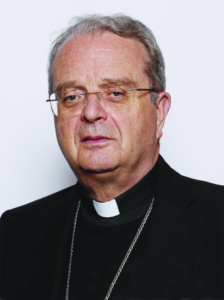 Arrigo Migilo
Arrigo Migilo
Archbishop Emeritus of Cagliari
Archbishop Arrigo Miglio, 80, Archbishop Emeritus of Cagliari, Sardinia, Italy, was born in Piedmont, Italy, and was ordained in 1967. He was named Bishop of Iglesias in 1992, then in 1999, Bishop of Ivrea. He is president of the scientific committee and organizer of the Social Weeks of Catholic Italians as well as a member of the Italian Episcopal Conference for social issues, labor, justice and peace, and has been president of the Sardinian Episcopal Conference since 2012.
Archbishop Miglio hosted a visit from Pope Francis to his diocese in the first year of the Francis pontificate. Then, as today, Archbishop Miglio focused on the theme of “family,” explaining that the Pope “encourages us to reflect on the fact that society destroys itself, collapses, if it does not support the family.”
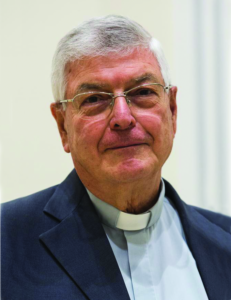 Father
Father
Gianfranco Ghirlanda
Father Gianfranco Ghirlanda, SJ worked at Fiat while earning a doctorate in jurisprudence at Sapienza University of Rome in 1966. He joined the Society of Jesus that year, and was ordained in 1973. He earned a licentiate in canon law and a doctorate in canon law summa cum laude at the Pontifical Gregorian University.
In 1986 Fr. Ghirlanda became a full professor of Canon Law at the Gregorian, later serving as Dean and then Rector. He has been a consultor to various Vatican dicasteries, and a judge of the Court of Appeal in Vatican City. In 2014, he was appointed to assist the Legion of Christ in its ongoing renewal process, and similarly in 2020 for the lay association Memores Domini. He is a member of the Dicastery for the Laity, Family and Life.
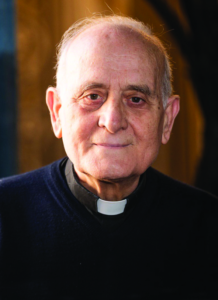 Monsignor
Monsignor
Fortunato Frezza
Fortunato Frezza was born in Viterbo, Italy, in 1942 and ordained in 1966. After earning degrees in theology from the Pontifical Gregorian University and in Sacred Scripture from the Pontifical Biblical Institute, he devoted his career to biblical scholarship and teaching, including in the Holy Land.
In 1983 he joined the staff of the General Secretariat of the Synod of Bishops and in 1997 became its under- secretary under Pope John Paul II and Pope Benedict XVI. In 2013, Pope Francis appointed him a canon of St. Peter’s Basilica and in 2022 he became Camerlengo of the Chapter of St. Peter. He was chaplain to the football team A.S. Roma.
His reaction to being named a cardinal: “I am ready to face what will be asked of me. I’m like a soldier.”

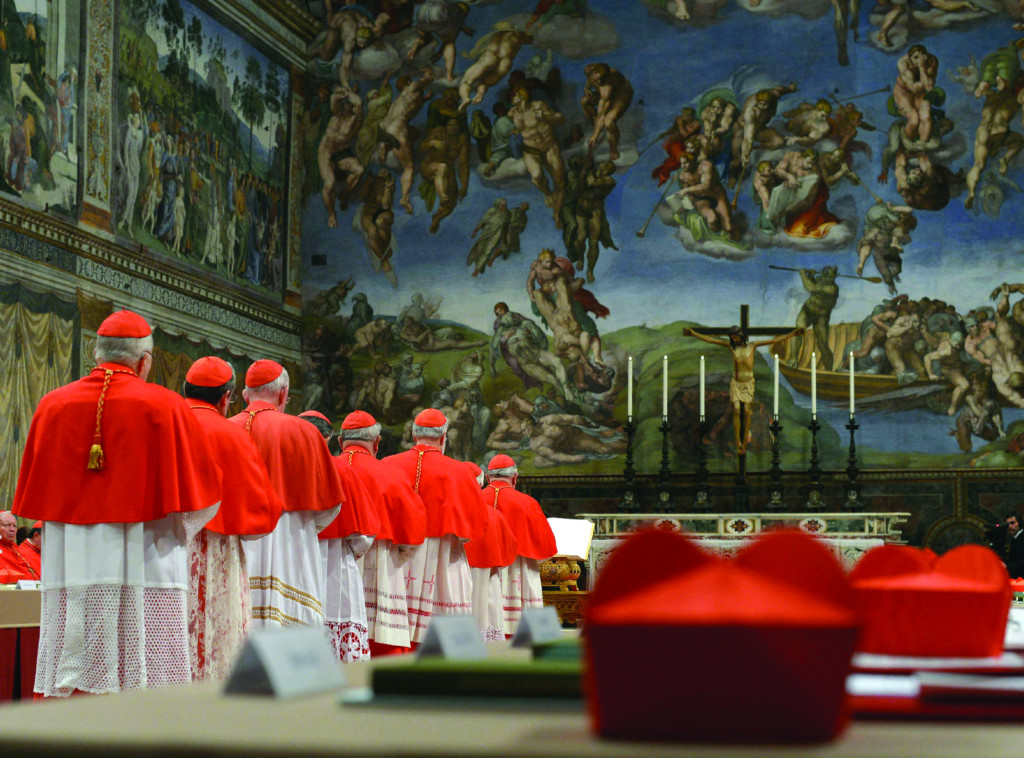
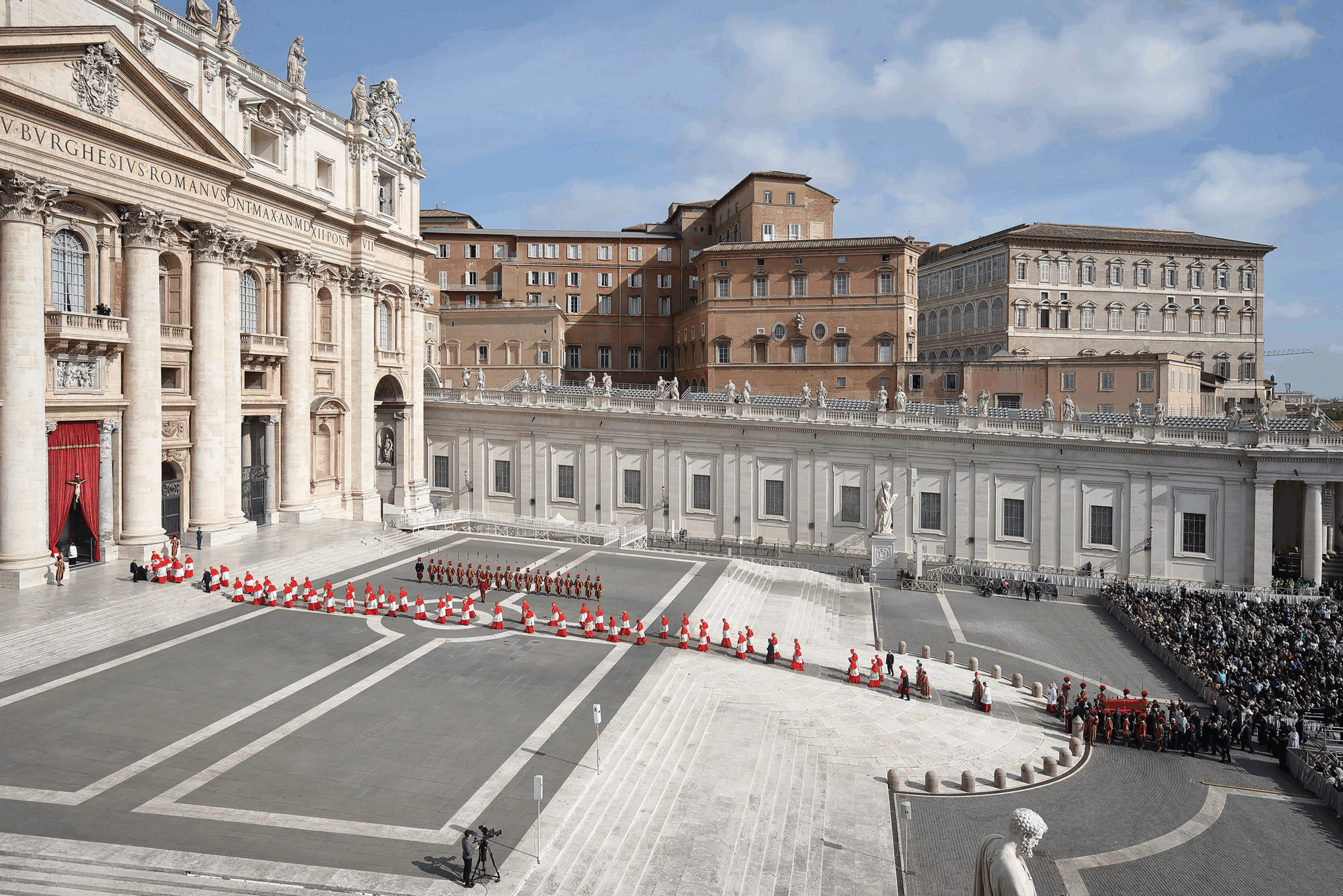




Facebook Comments